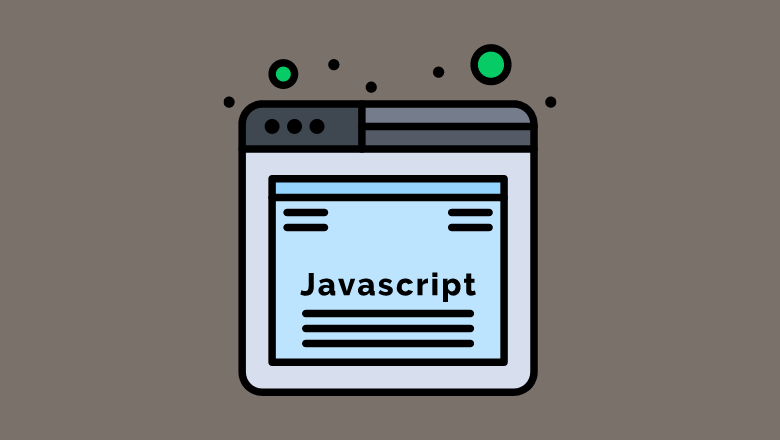
Conducting effective JavaScript Developer Interviews can be challenging. As the demand for JavaScript developers continues to rise, so does the need for effective interviewing techniques.
Conducting interviews for JavaScript developers can be challenging, especially if you need a solid technical background.
But fear not; this article will provide tips and tricks for conducting effective JavaScript developer interviews.
Technical Skills Assessment

Technical Skills Assessment is crucial to conducting an effective JavaScript Developer interview. But as a recruiter, you might wonder how to evaluate a candidate’s technical abilities without being an expert.
One of the most effective ways to assess a candidate’s technical skills is through coding challenges. You can use websites like HackerRank or Codility to create coding challenges that test the candidate’s knowledge of JavaScript.
These platforms offer challenges ranging from easy to advanced, allowing you to tailor the difficulty level to the role you’re hiring for.
Another approach is to conduct live coding sessions with the candidate. This lets you see how the candidate thinks and works in real-time. You can give them a coding problem and watch as they write the code, explaining their thought process as they go along.
The candidate’s coding skills, problem-solving capabilities, and ability to work under pressure will be better understood.
Finally, you can use online assessments to evaluate a candidate’s technical skills. Many platforms, such as Pluralsight, offer assessments in various programming languages, including JavaScript. These assessments provide a quick way to evaluate a candidate’s skills and knowledge and can be especially useful when you’re short on time.
Overall, Technical Skills Assessment is critical to a successful JavaScript Developer interview. You can confidently evaluate a candidate’s technical skills using coding challenges, live coding sessions, and online assessments, even if you need a solid technical background.
Behavioral Questions

Assessing a candidate’s technical skills is essential, but evaluating their soft skills is just as crucial. Incorporating behavioral questions into your JavaScript Developer interview process is so important.
Behavioral questions can help you understand how the candidate approaches problem-solving, communicates with team members, and handles conflicts. These questions can also give insight into the candidate’s teamwork abilities, leadership potential, and overall work ethic.
For example, ask questions such as “How do you handle conflict with your team members?” or “How do you handle trouble?”These questions allow the candidate to demonstrate their communication and conflict resolution skills, which are critical in a collaborative work environment.
Another approach is to ask the candidate to walk you through their problem-solving process. For instance, ask, “What’s your approach to solving complex coding problems?” or “How do you handle unexpected coding errors?”
These questions provide insight into the candidate’s thought process, problem-solving abilities, and ability to work under pressure.
Lastly, you can ask questions about the candidate’s leadership potential. For example, you can ask, “Tell me about a time when you took on a leadership role in a project?” or “How do you motivate your team members to achieve project goals?”
These questions allow you to assess the candidate’s ability to inspire and motivate team members, which is crucial to any team’s success.
Incorporating behavioral questions into your JavaScript Developer interview process is essential to evaluating a candidate’s soft skills.
By asking questions about communication, problem-solving, and leadership potential, you can gain valuable insight into candidates’ ability to work collaboratively, lead a team, and excel in their roles.
Role-Specific Questions

In addition to assessing a candidate’s technical and soft skills, asking role-specific questions during a JavaScript Developer interview is essential. Role-specific questions allow you to evaluate the candidate’s knowledge of tools, frameworks, and technologies relevant to your hiring position.
For example, consider asking questions like “What experience do you have with React or Angular?” or “How do you approach testing and debugging?”
These questions help you assess the candidate’s proficiency with specific tools and their understanding of best practices in JavaScript development.
Another approach is to ask questions related to the job responsibilities. For instance, if you’re hiring a front-end developer, you can ask questions about user interface design and optimization. If hiring a full-stack developer, you can ask questions about server-side technologies and database management.
Moreover, you can ask questions that assess the candidate’s familiarity with various development methodologies, such as Agile or Scrum. These methodologies emphasize collaboration, iterative development, and continuous improvement, making them popular in the software development industry.
Overall, role-specific questions are a crucial part of the JavaScript Developer interview process. You can evaluate the candidate’s technical knowledge, expertise, and ability to meet the job’s demands by asking questions about your hiring role.
Take-home assignments

Take-home assignments are becoming increasingly popular in JavaScript Developer interviews. These assignments allow candidates to showcase their technical skills and demonstrate their problem-solving abilities in a more realistic environment than in a traditional interview.
Take-home assignments can take many forms, such as building a small application, writing code to solve a specific problem, or creating technical documentation. These assignments should align with the particular job responsibilities of the position you’re hiring for.
One of the benefits of take-home assignments is that they allow candidates to work at their own pace and in their environment. This will enable them to showcase their true abilities without the pressure of a traditional interview.
Moreover, take-home assignments allow candidates to demonstrate their ability to work independently, a crucial skill in many development roles.
However, providing clear instructions and expectations is essential when assigning a take-home project. Make sure to communicate the scope of the project, the expected deliverables, and the deadline. It’s also necessary to provide feedback to the candidate after they’ve completed the assignment, even if they don’t receive an offer.
Overall, take-home assignments effectively evaluate a candidate’s technical skills and problem-solving abilities in a more realistic environment than a traditional interview. By providing clear instructions and expectations, you can ensure that the candidate has the opportunity to showcase their true abilities and ultimately make an informed hiring decision.
Whiteboarding Sessions

These sessions involve presenting the candidate with a coding problem and asking them to write the solution on a whiteboard or paper.
Whiteboarding sessions can assess a candidate’s problem-solving abilities and understanding of coding concepts. These sessions allow you to observe the candidate’s thought process and how they approach the problem.
When conducting a whiteboarding session, it’s essential to provide clear instructions and expectations. Communicate the problem’s scope and any constraints the candidate should know. It’s also necessary to give the candidate enough time to think through the problem and ask any questions they may have.
One of the benefits of whiteboarding sessions is that they allow you to evaluate a candidate’s ability to communicate and collaborate with others. During the session, you can observe how the candidate communicates their thought process and how they respond to feedback or suggestions.
However, it’s essential to remember that whiteboarding sessions can be stressful for candidates. Creating a comfortable and supportive environment and providing constructive and helpful feedback are necessary.
Whiteboarding sessions can assess a candidate’s problem-solving abilities and understanding of coding concepts.
By providing clear instructions and expectations, creating a supportive environment, and giving feedback, you can ensure that the whiteboarding session is a valuable part of the JavaScript Developer interview process.
Wrapping up about JavaScript Developer Interviews
Conducting effective JavaScript developer interviews requires a combination of technical and behavioral assessments. You can assess technical skills through coding challenges, online assessments, and live coding sessions.
Behavioral questions can help you understand the candidate’s communication skills, teamwork abilities, and problem-solving skills.
Role-specific questions can help you assess a candidate’s knowledge of the specific role they’re applying for. Take-home assignments and whiteboarding sessions are other effective assessment methods.
By following these tips, you’ll be well on your way to conducting effective JavaScript developer interviews.
Christopher is a distinguished technical author renowned for his expertise in scientific computer science. With an illustrious career as a development manager at Cisco, Sun, and Twitter, he has consistently demonstrated exceptional leadership and technical acumen in delivering successful projects.
Christopher’s technical writing reflects his extensive knowledge and practical experience in scientific computer science. His ability to effectively communicate complex concepts to diverse audiences has earned him recognition within the scientific community. Through his publications, Christopher aims to share his insights, foster collaboration, and contribute to the advancement of the field.
As a technical author, Christopher remains committed to staying at the forefront of emerging technologies and driving innovation in scientific computer science. His expertise in Javascript development, coupled with his experience as a development manager, positions him as a valuable resource for professionals seeking guidance and best practices. With each publication, Christopher strives to empower readers, inspire creativity, and push the boundaries of scientific computer science.







